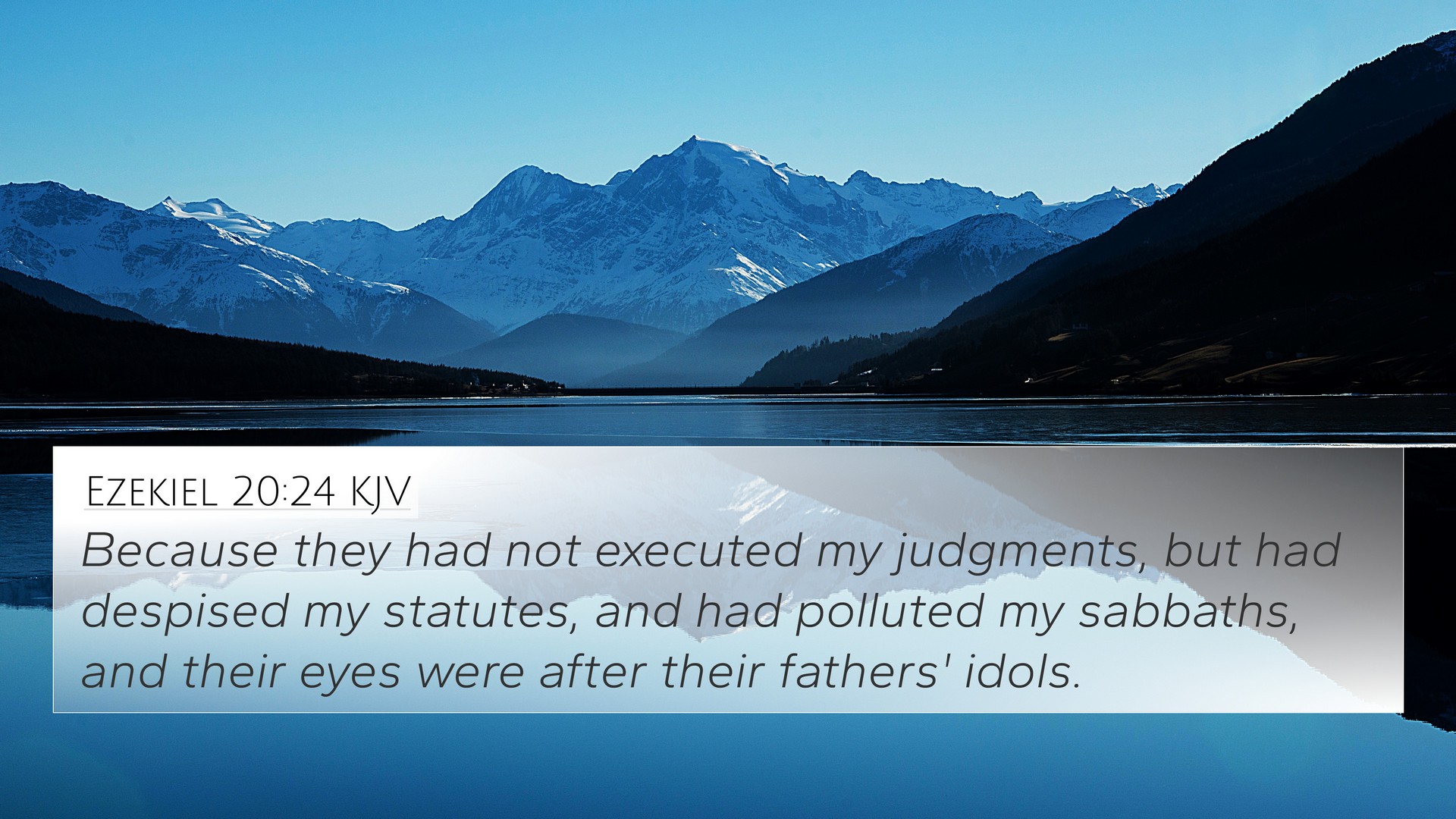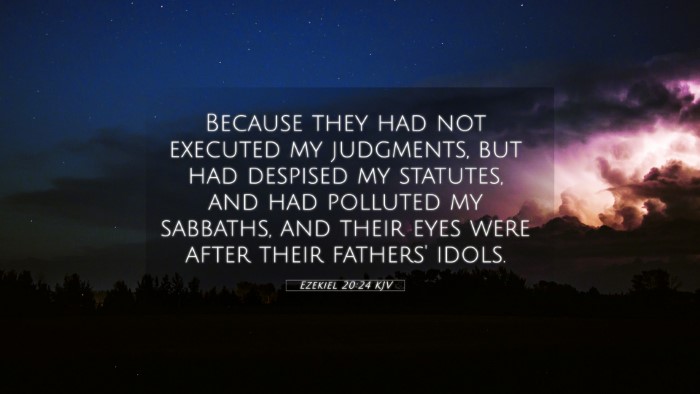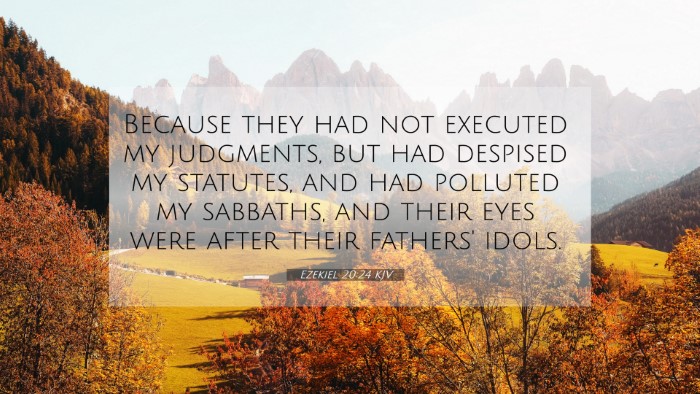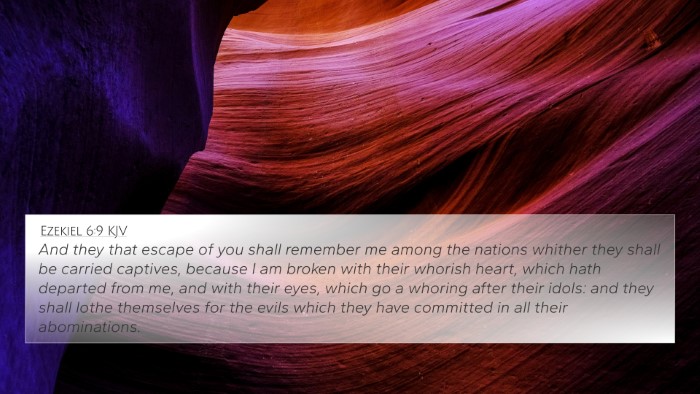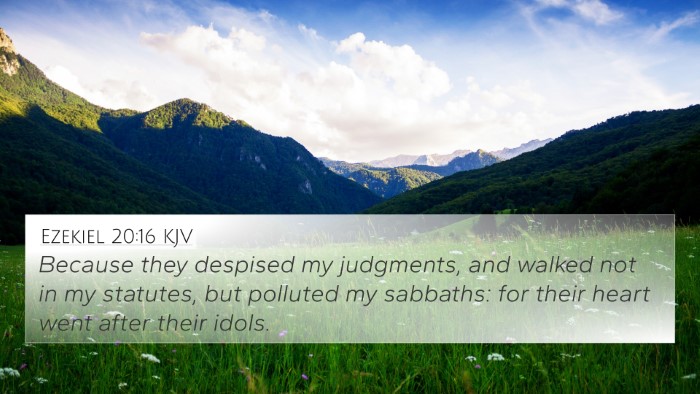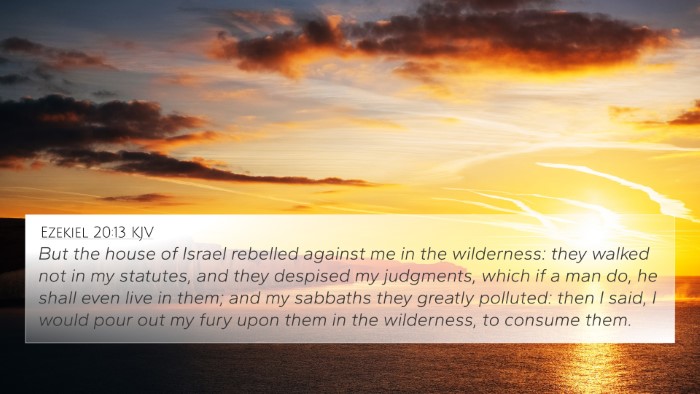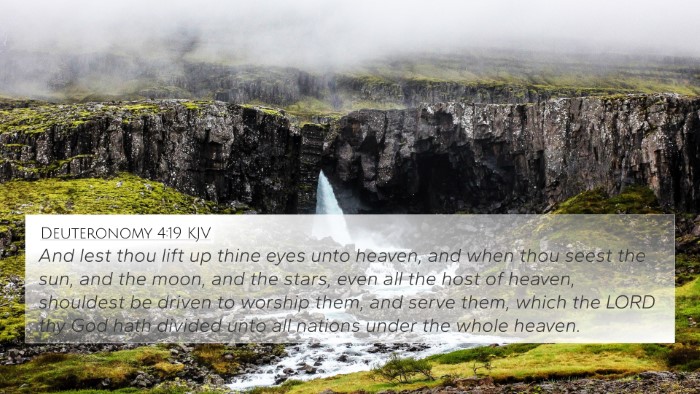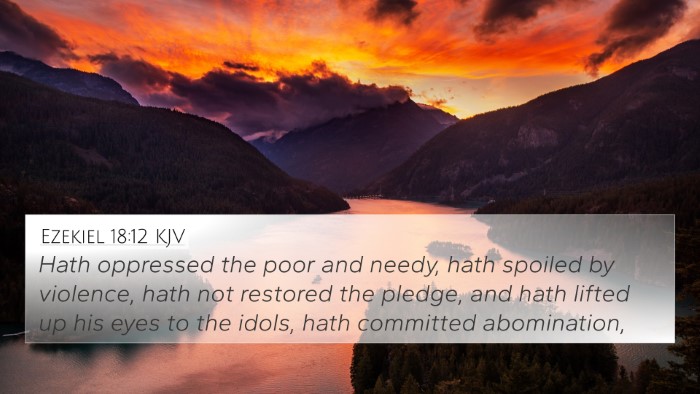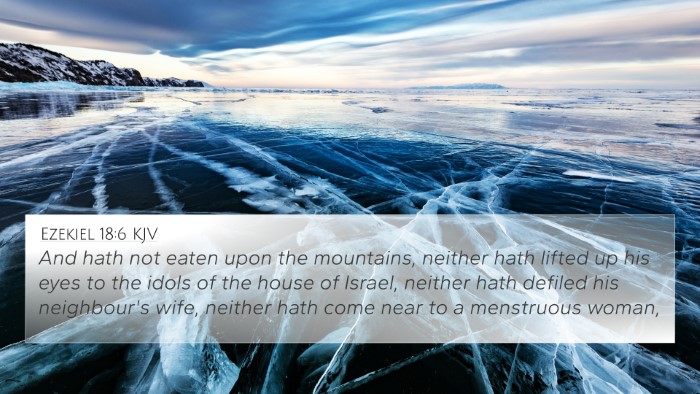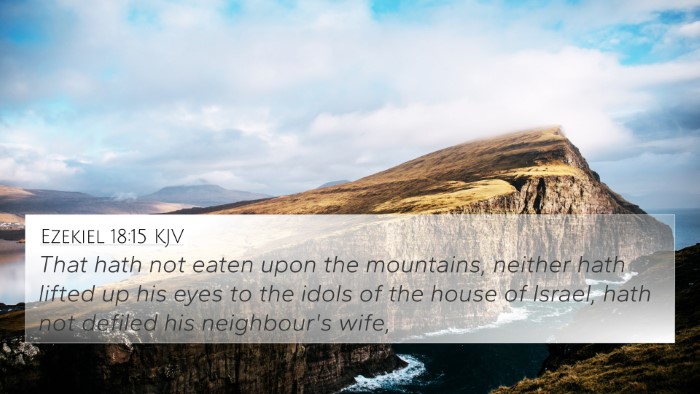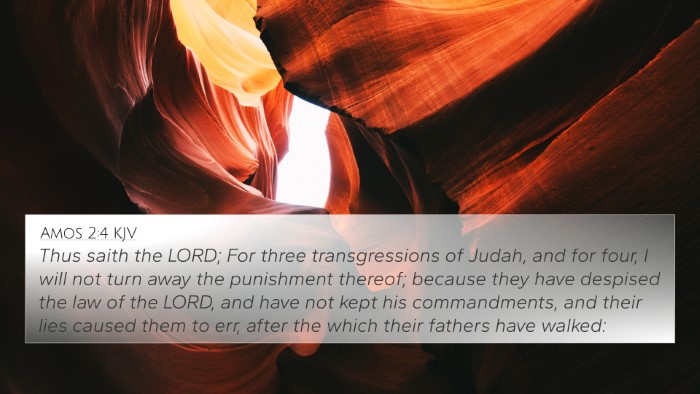Ezekiel 20:24 - Summary and Interpretation
Verse Reference: Ezekiel 20:24 - "Because I did not bring them into the land which I had given them, flowing with milk and honey, which is the glory of all lands;"
Understanding Ezekiel 20:24
Ezekiel 20:24 highlights God's judgment upon Israel due to their rebellion and disobedience. In this profound declaration, the Lord reflects on His promises to bring His people into a land of abundance, which symbolizes divine favor and blessing.
The verse emphasizes the gravity of Israel's infidelity, showing that their actions led to a forfeiture of God's intended blessings. This sentiment resonates throughout Scripture, reinforcing the notion that disobedience can lead to spiritual and physical desolation.
Insights from Public Domain Commentaries
Matthew Henry's Commentary
Matthew Henry illustrates that the Israelites’ failures culminated in God's decision to withhold the great promise of the land flowing with milk and honey. He argues that this severe consequence serves as a warning about the importance of faithfulness and recognizing the covenant relationship between God and His people.
Albert Barnes' Notes on the Bible
Albert Barnes provides a detailed examination of the historical context surrounding this verse, noting that the disobedience of the Israelites led God to reject their entry into the Promised Land. Barnes emphasizes that God's initial intention was to bless them abundantly, emphasizing the "glory of all lands," but their repeated transgressions limited those blessings.
Adam Clarke's Commentary
In his commentary, Adam Clarke reflects on the significance of the phrase "the glory of all lands." He interprets this as a reflection of the richness and prosperity that God desired for Israel. Clarke points out that this verse serves as a reminder of God’s consistent desire for His people to thrive under His guidance, yet their rebellion results in missing out on what He had prepared for them.
Cross-Referencing Biblical Texts
To further enrich the understanding of Ezekiel 20:24, several related Bible verses provide additional insights and thematic connections:
- Deuteronomy 6:10-12: God's promise of a land flowing with milk and honey emphasizes His continuous provision.
- Exodus 3:8: The Lord speaks of bringing Israel out of Egypt into a good and large land.
- Jeremiah 2:7: Jerusalem, as the land of the promise, is described in terms of God's expectations for faithfulness.
- Psalm 106:24-27: Reflects on Israel’s disregard for the Promised Land, leading to God’s disappointment.
- Numbers 14:29-30: God’s declaration that the disobedient generation would not enter the Promised Land.
- Isaiah 5:5: Conveys God's intention of planting a vineyard (Israel) and the consequences of failure.
- Revelation 21:4: Connects the theme of God's ultimate promise of restoration and blessing to His people.
Thematic Connections in Scripture
The themes of judgment, promise, and faithfulness resonate throughout the Bible, creating interconnections with Ezekiel 20:24. This verse serves as an example of God's desire for His people to experience His covenantal blessings, which align with numerous biblical narratives and teachings.
Through comparative Bible verse analysis, we can observe how the failures of Israel reflect broader themes of human disobedience found in both the Old and New Testaments. An effective way to study these connections is by utilizing tools for Bible cross-referencing, allowing deeper exploration of related themes and teachings.
Conclusion
Ezekiel 20:24 serves as a sobering reminder of the implications of disobedience against God's covenant. This verse, alongside the related scriptures, underscores the significant blessings offered to the faithful and the dire consequences faced by the unfaithful.
For those seeking to delve deeper into the Scriptures, understanding the cross-referencing Bible study methods can unveil the interconnectedness of biblical themes. This exploration can aid in identifying connections between the Old and New Testaments, enriching one's understanding of God's redemptive arc through scripture.
